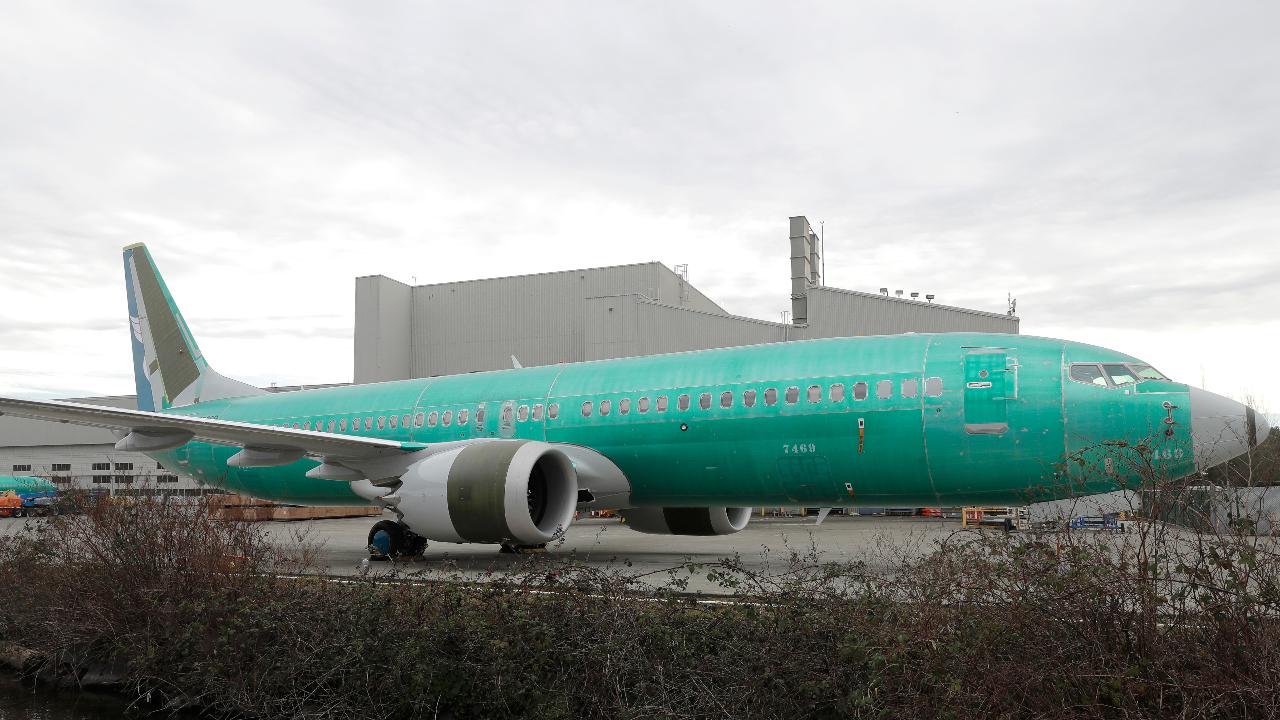Boeing CEO has no plans to resign, denies flaw in Max design after fatal crashes
Boeing CEO Dennis Muilenburg does not intend to resign as head of the Chicago-based plane manufacturer despite the ongoing scrutiny from the federal government and the flying public over the recent 737 Max jet crashes and reports of potential safety issues at the firm's South Carolina plant.
| Ticker | Security | Last | Change | Change % |
|---|---|---|---|---|
| BA | THE BOEING CO. | 244.74 | +1.76 | +0.72% |
Appearing in front of the media for the first time since the international grounding of the jet after the Lion Air and Ethiopian Airlines crashes, Muilenburg was also confident that the company would re-earn the trust of regulators and passengers with a pending software update to address underlying issues that led to the two incidents which killed a total of 346 individuals.
He declined to admit, however, that the design of the 737 Max, an update to Boeing's most popular plane, was flawed.
A preliminary investigation into the Ethiopian Airlines crash found that its cause was a faulty "angle of attack" sensor, which tracks lift at take-off to prevent stalling, that in turn activated the jet's Maneuvering Characteristics Augmentation System (MCAS), an auto-pilot program that encourages the plane's nose to dip down.
"My clear intent is to continue to lead," he told reporters at Boeing's annual shareholder meeting. "In both accidents, there was a chain of events that occurred. One of the links in that chains was the activation of the MCAS due to erroneous 'angle of attack' data. That was a common link in both accidents. We know we can break that link in the chain, that is a link that we own."
In the face of growing pressure, investors on Monday renewed their support for Muilenburg, voting down a proposal that would have divided up the roles of chairman and CEO in the future. He currently serves in both capacities.
Muilenburg said the design and certification of MCAS adhered to established safety standards and noted that the company has not "seen a technical slip or gap in terms of the fundamental design and certification of the approach."
"It's a purposeful design. It's something that is designed to be part of how the airplane flies, so as part of the certification process. It's not something that's a separate procedure or needs to be trained on separately," he told reporters.
The Max jet uses data from just one "angle of attack" sensor, a decision that experts have questioned given the susceptibility to errors. The software update will now factor in information from an additional sensor, among other changes. It has not yet been submitted to the Federal Aviation Administration.
The federal government is investigating the crashes, including a criminal probe by the Department of Justice into the certification of the Max jet. The Federal Aviation Administration has also received a number of whistleblower complaints from the Boeing employees about the airliner, according to media reports.
Amid reports of potential safety issues at Boeing's plant in South Carolina that produces the 787 Dreamliner, the FAA on Monday also said it would increase oversight of the jet after reports of "hydraulic leakage."
CLICK HERE TO GET THE FOX BUSINESS APP
Carriers, including Southwest Airlines and American Airlines, have lost hundreds of millions of dollars as a result of the halt in operations of the fleet. Muilenburg said Boeing was "actively engaged" with its airline clients, both domestically and internationally, about potential reimbursement.




















